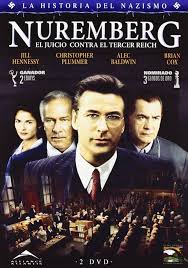
Introduction
The Nuremberg movie, based on the historic Nuremberg Trials that took place after World War II, serves as an important cinematic portrayal of justice and accountability. The trials were pivotal in setting precedents for international law and human rights. As the world grapples with issues of war crimes and justice, the examination of such films becomes increasingly relevant to contemporary audiences.
The Nuremberg Trials: A Brief Overview
The Nuremberg Trials occurred between 1945 and 1946, where Allied forces prosecuted prominent leaders of Nazi Germany for crimes against humanity. The significance of these trials lies not only in the legal proceedings themselves but also in their role in shaping modern international law. The trials challenged the notion of sovereign immunity and laid the groundwork for future prosecutions of war crimes.
The Cinematic Portrayal
The 1961 film “Judgment at Nuremberg,” directed by Stanley Kramer, is among the most notable cinematic interpretations of the trials. The film presents a fictionalized account of a trial against German judges who enforced the Nazis’ totalitarian regime, spotlighting moral responsibility and complicity in atrocities. The performances of actors like Spencer Tracy, Burt Lancaster, and Judy Garland have been lauded for their depth and emotional resonance.
Impact on Public Perception
The Nuremberg movie not only serves to educate audiences about the historical significance of the trials but also raises critical questions about justice and moral complicity. By dramatizing the courtroom proceedings, the film engages viewers, prompting them to reflect on the nature of justice and the horrors of war. It remains a vital cinematic reference for understanding the complex ethical dilemmas faced in times of conflict.
Conclusion
As discussions around war crimes and international justice continue to evolve, the relevance of the Nuremberg movie persists. It thrusts into the limelight the importance of acknowledging historical atrocities and holding accountable those who orchestrate them. For contemporary audiences, understanding the weight of history through such films fosters a more profound dialogue about responsibility, justice, and the imperative to prevent future atrocities. The legacy of the Nuremberg Trials continues to resonate, reminding us that history’s lessons remain crucial for guiding our moral compass in the present and future.



